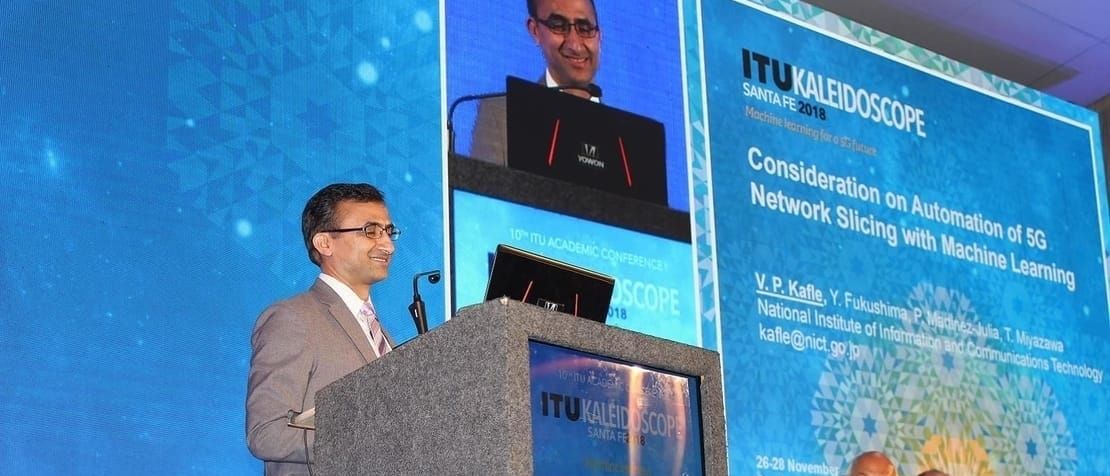
Kaleidoscope 2018: Highlights from Day 2
The second day of Kaleidoscope 2018: Machine Learning for 5G Future put forward a vision of 5G networks as highly dynamic, highly automated and especially adept at optimizing data management.
Alongside engaging presentations of academic papers, the Jules Verne Corner proved to be another highlight of Day 2, forecasting the future of work and privacy in the era of Artificial Intelligence.
Kaleidoscope is ITU’s flagship academic event. Its tenth edition is being held in Santa Fe, Argentina, 26-28 November, hosted by Universidad Tecnológica Nacional.
For media coverage of Kaleidoscope 2018 in Spanish, see El Litoral, Santa Fe Government Portal and Diario la Opinion.
Highlights from Day 2 presentations of academic papers
Machine Learning for data management shows significant potential to support cloud-optimized 5G networking, particularly by improving critical resource-management decisions with two-phase optimization schemes for virtual machine placement. See presentation.
Machine Learning could offer valuable support to automated 5G network slicing, contributing to the allocation and adjustment of network slices’ computing and network resources in tune with different service requirements and time-varying network workloads. See presentation.
RELATED: Follow Kaleidoscope 2018 online
Recurrent Neural Networks composed of ‘long short-term memory’ (LSTM) units have proven highly precise in predicting sequences, making LSTM neural networks particularly well suited to the prediction of activities in business processes. These networks could thus offer valuable support to Industry 4.0 and Internet of Things (IoT) applications by improving the allocation of physical as well as virtual resources. See presentation.
Future networks will be required to support massive-scale IoT applications, leading researchers to highlight the value of reinforcement learning in guiding IoT nodes’ decisions of which radio access technology to employ when reporting events, decisions which would aim to achieve sufficient throughput while limiting power consumption and operational costs. See presentation.
< Download all presentations from the workshop programme >

Kaleidoscope, Machine Learning and ITU
Machine Learning is supporting the smarter use of network-generated data, enabling network operators and service providers to adapt to changes in traffic patterns, security risks and user behaviour.
The topic is gaining a larger share of the ITU standardization work programme in fields such as coding algorithms; data processing and management; and network management and orchestration.
Authors of outstanding Kaleidoscope papers will be invited to contribute to the work of the ITU Focus Group on ‘Machine Learning for Future Networks including 5G’.
Kaleidoscope events are peer-reviewed academic conferences that increase dialogue between academics and ICT standardization experts. The conference identifies emerging trends in ICT research and associated implications for international standardization.
